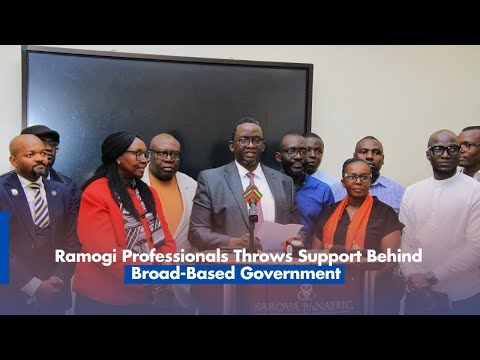Many young people are languishing in joblessness in the villages of Jomvu, yet they are well trained and have several employable skills needed in the blue economy sector.
This is because there is a huge awareness deficit about the blue economy sector and the available opportunities.
“They don’t know there are these job opportunities. They don’t know the requirements and they don’t know the procedure to follow to acquire these jobs,” said Betty Makena, an International Transport Federation inspector.
Makena said she, as a member of Women in the Maritime Sector in East and Central Africa (Womesa), has teamed up with Jomvu MP Badi Twalib to create this awareness and help as many youth as possible get into the maritime and blue economy job market.
Twalib said there are immense opportunities in the blue economy sector that he will ensure his constituents get.
Already, the MP has set aside Sh1.2 million from the Jomvu NG-CDF to help train some 500 youth from his constituency at the Bandari Maritime Academy (BMA).
“We have so many youth here who are housekeepers, divers, cooks, waiter, plumbers, and many others but who are idling at home because they are not employed,” Twalib said.
He said if the youth are taken to BMA to train on the expensive Standard of Training, Certification and Watchkeeping (STCW) mandatory course, the youth will be easily employable on cruise ships.
The STCW is a prerequisite for employment aboard any vessel.
On average, the STCW mandatory course takes 20 days full-time and costs about Sh135,000 per head.
Twalib said this may not be affordable for majority of the youth but he will chip in, and help those willing so as to take the course.
He said he will act as the bridge between the jobless youth and the job opportunities.
“Once our youth get these jobs, so many other things will fall into place. We will have less crime, we will have less drug addicts, we will have less fights between couples,” said Twalib, arguing that the life situations always push youth into vices like drug addiction, crime and fights.
Makena, who attended the first Blue Economy and Maritime Affairs Sensitisation Forum organised by Twalib in Jomvu, commended the MP for such an important step.
She said the NG-CDF should also consider sponsoring students to take the STCW course.
“We are telling the young people to prepare themselves to go to the sea and creating awareness of the job opportunities on board the ships, the maritime industry and the blue economy But these need the STCW which are expensive. This is where MPs like Badi Twalib come in,” she said.
Makena said the NG-CDF should create revolving funds to help sponsor youth for the STCW course so that when they are employed, they are able to pay back the funds, which will then help another youth.
The ITF inspector said she has received many requests for direction from youth who have the relevant skills but luck the STCW training.
“That is when I realized there are many people out there who have these skills and experience but only luck this vital safety course for the maritime sector,” she said.
She said nobody has been guiding the youth who have been left to fumble on their own.
“As Womesa, we have been doing this awareness but have been focusing on girls in high schools. Last year we started going to the TVETs and targeting hospitality students. Now we are moving to the community,” Makena said.
Twalib also urged the youth to be conversant with the English language saying interviews for the maritime jobs, in most cases, are done in English.
“This elicited some sharp reaction when it was raised by former Maritime PS Nancy Karigithu but it is a serious issue. Our youth must learn to communicate in fluent English,” Twalib said.














![[PHOTOS] Ole Ntutu’s son weds in stylish red-themed wedding](/_next/image?url=https%3A%2F%2Fcdn.radioafrica.digital%2Fimage%2F2025%2F11%2Ff0a5154e-67fd-4594-9d5d-6196bf96ed79.jpeg&w=3840&q=100)

